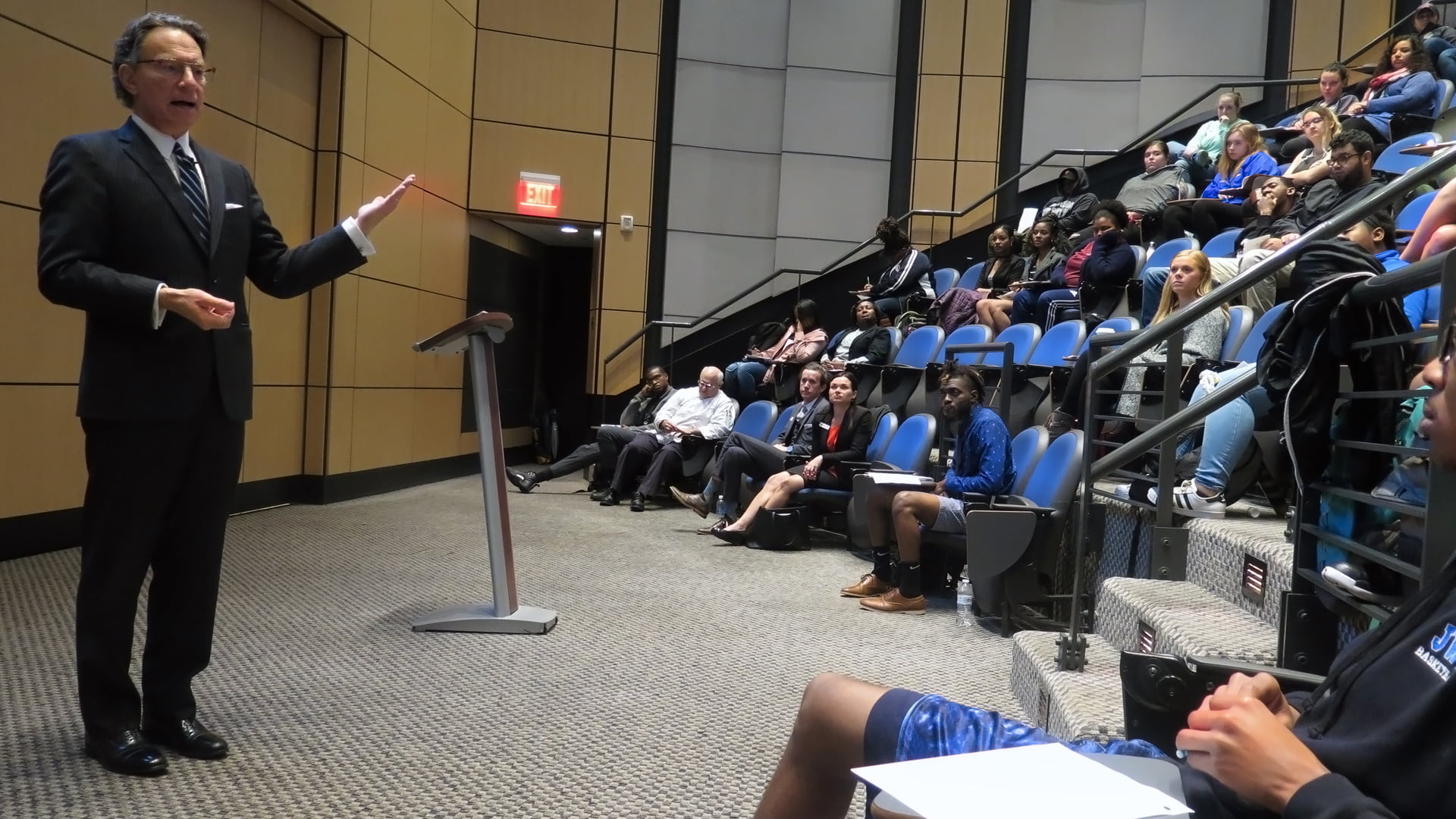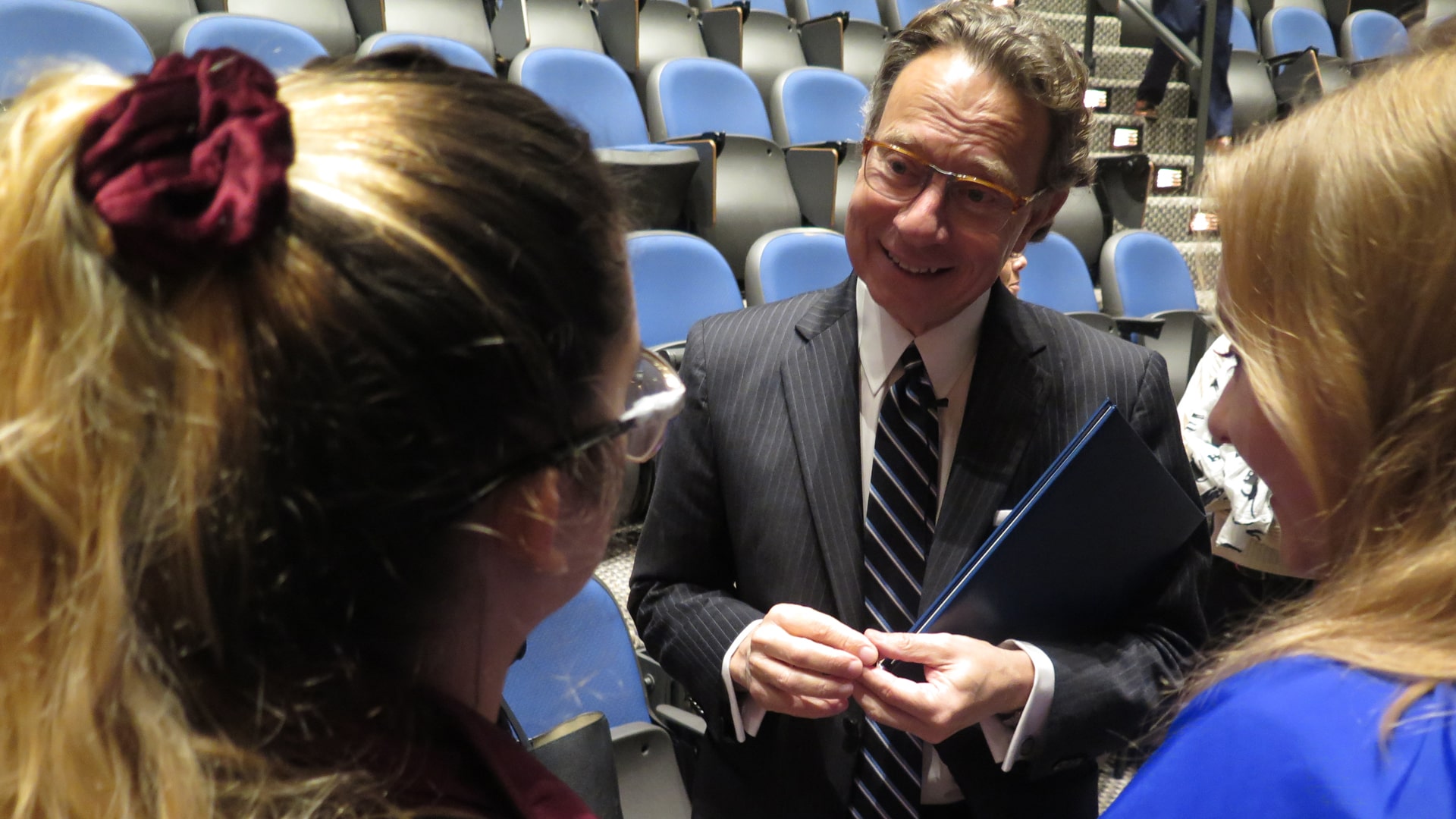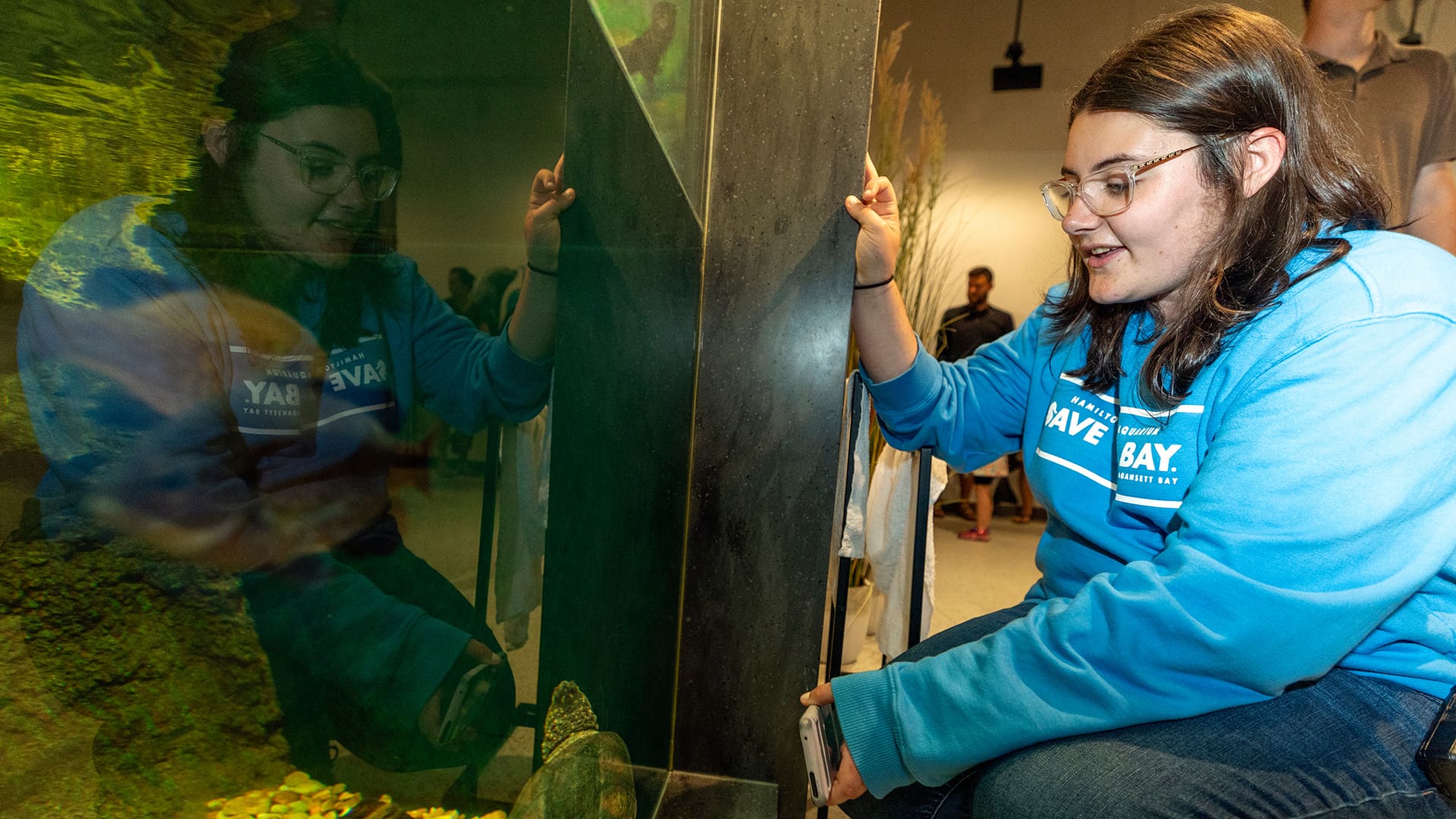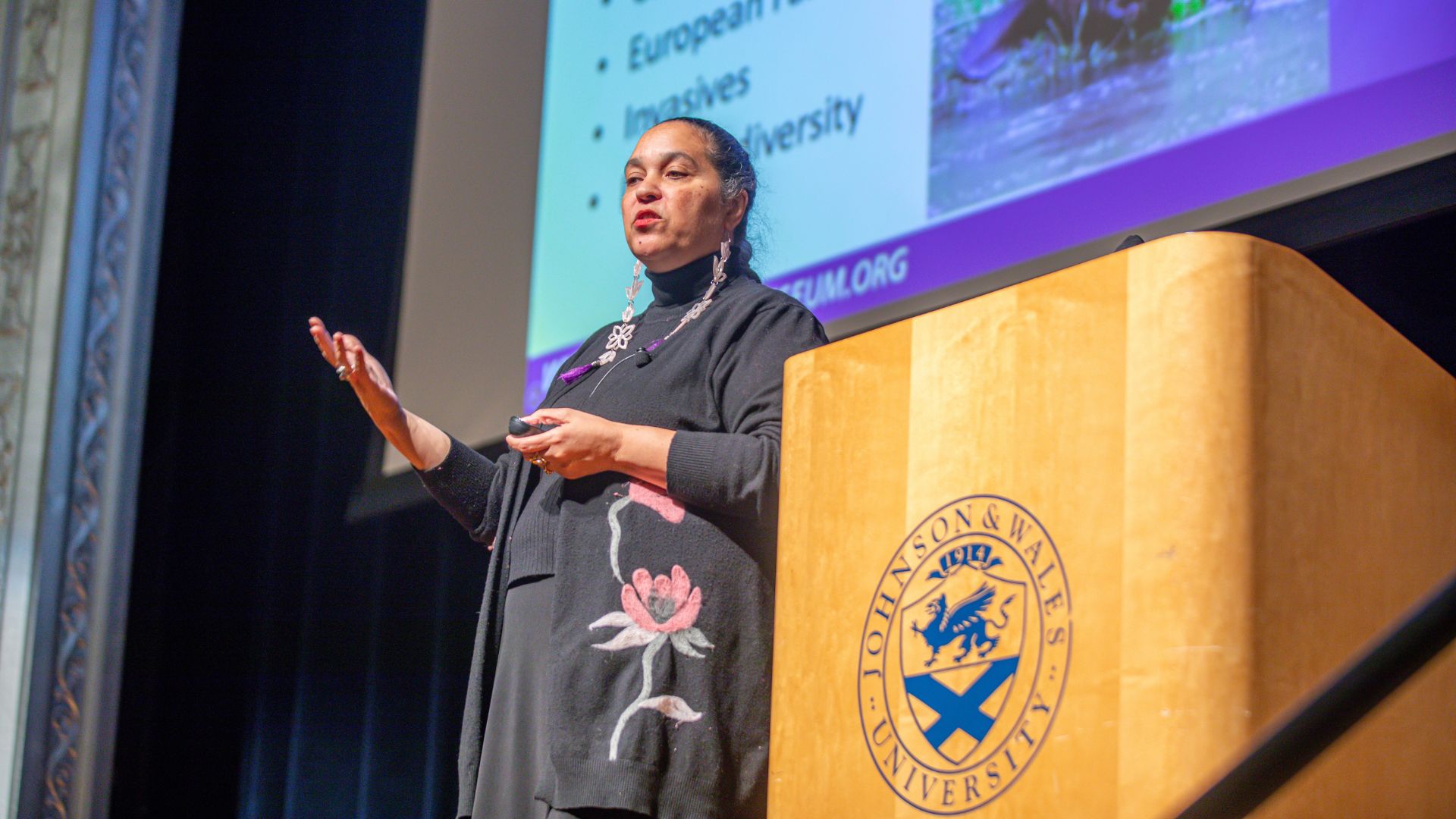Charlotte Arts Visionary on the ‘Angels in America’ Crisis that Defined His Career
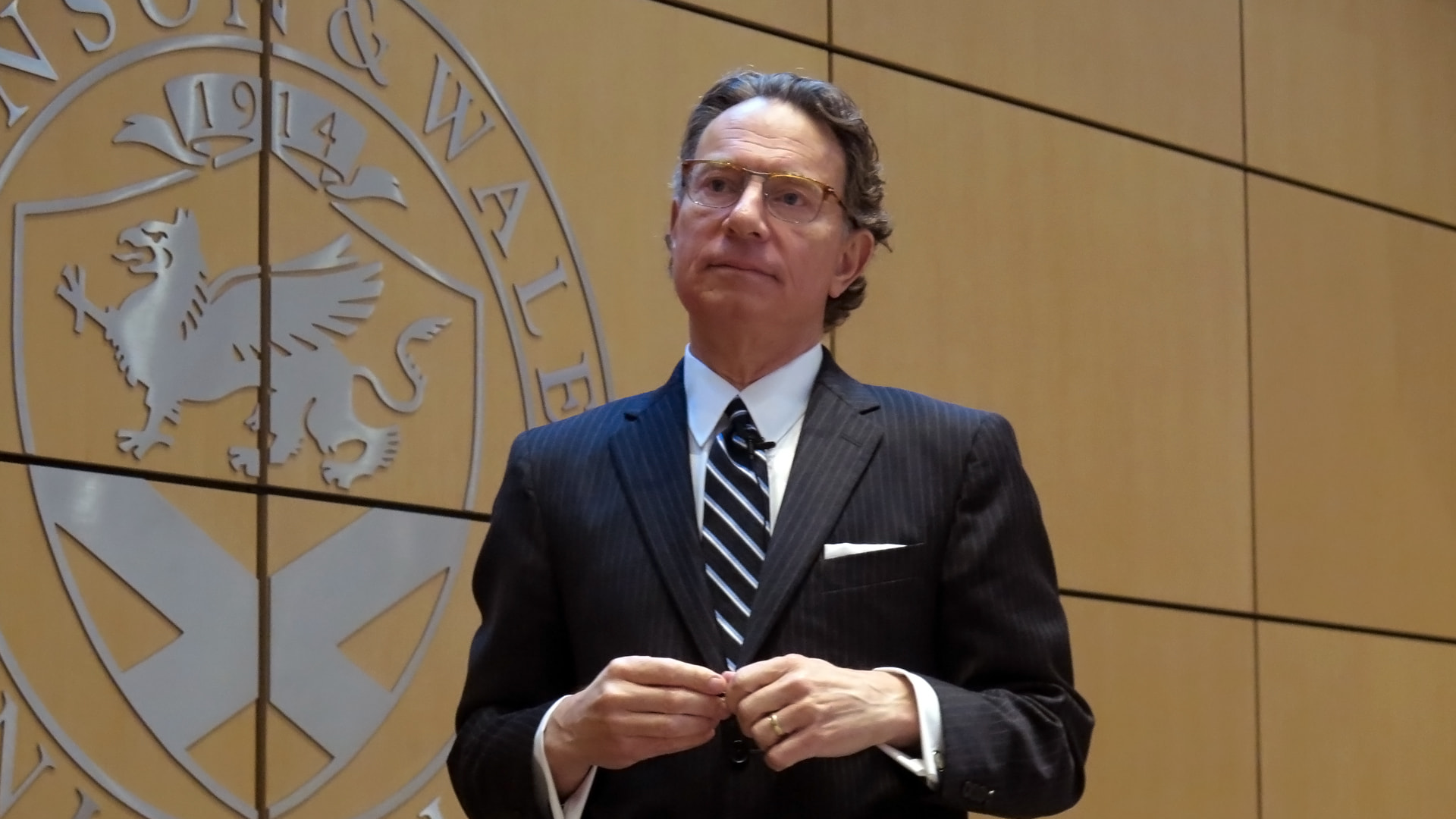
Controversy is the nightmare of every arts organization, especially ones that rely on public funding. Michael Marsicano, Ph.D., currently serves as the president and CEO of Foundation of the Carolinas. (In 2017, Charlotte Magazine named him their Visionary of the Year.) But in 1996, the then-president of the Arts & Science Council was thrust into the national spotlight over the Charlotte Repertory Theatre’s production of the Pulitzer Prize-winning play, “Angels in America.”
Arts & Sciences Professor Mark Peres, J.D., recently brought Marsicano to campus as a Distinguished Visiting Professor (DVP) to share this defining experience, as well as its broader significance — both for Charlotte’s cultural scene, and as a case study for students to consider when navigating their own ethical dilemmas.
First premiered in 1991, “Angels in America” is a candid treatment of gay life and the impact of AIDS in the 1980s. Now considered a classic, it frequently drew fire from conservative groups — in Charlotte’s case, the protesters found a loophole in North Carolina law that threatened to shut the play down. As Marsicano explained to students, “There were just a few seconds of nudity in a health clinic scene. A group found a clause in the NC law that made it illegal to disrobe in public. There was no real legal challenge to fight the homosexual theme.”
"His decisions helped preserve artistic expression in Charlotte."
The Arts & Science Council faced a considerable moral dilemma: Risk losing $2.5 million in public funding, or open the play as scheduled. Would Marsicano bow to public pressure? Or take a stand to uphold a work of art?
He vowed to take a stand. The decision did not come easily, but, ultimately, he knew it was the right thing to do: “My greatest surprises have come from the ethical challenges I have faced,” he told students. “The charitable sector is about what’s right and good. I relied on my internal compass to deal with many ethical dilemmas.”
Not only did the show open as scheduled, but ticket sales skyrocketed. And the $2.5 million in funding that the Council lost during the controversy? The moneys were restored (with an increase) the following year. Ultimately, Marsicano’s faith in Charlotte’s arts community was repaid.
Michael Morra ’21, a business management major, wondered how Marsicano would have resolved such a controversy were it to happen in our current 24/7 news cycle: “Given the technology and amount of social media and buzz created off of these situations, the amount of pressure, ridicule and scrutiny would be amplified unbelievably.”
Marsicano got choked up at times as he recounted the days he spent fighting the naysayers and trying to choose the action that he felt was right. Jobs and public funding were at stake based on his decisions. “But for me,” Marsicano said, “It was about our community being tolerant.”
Peres praised Marsicano’s leadership and clarity of vision: “His decisions helped preserve artistic expression in the city and public funding of the arts. It was a defining moment for our region.”
